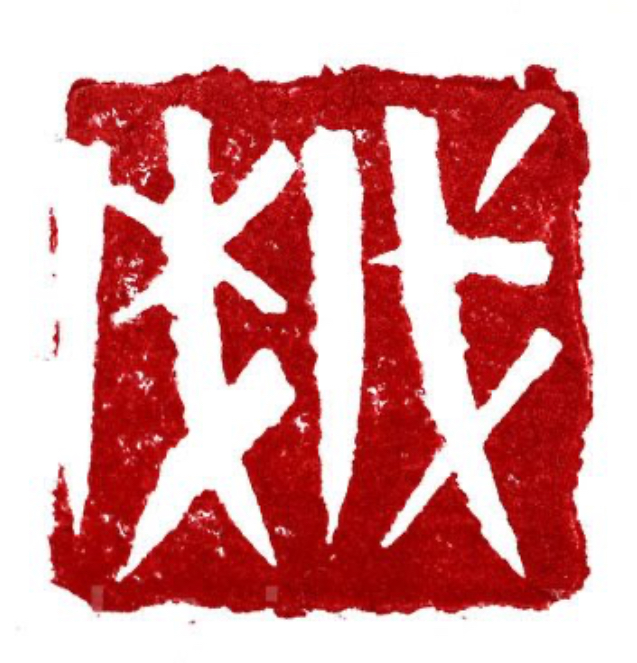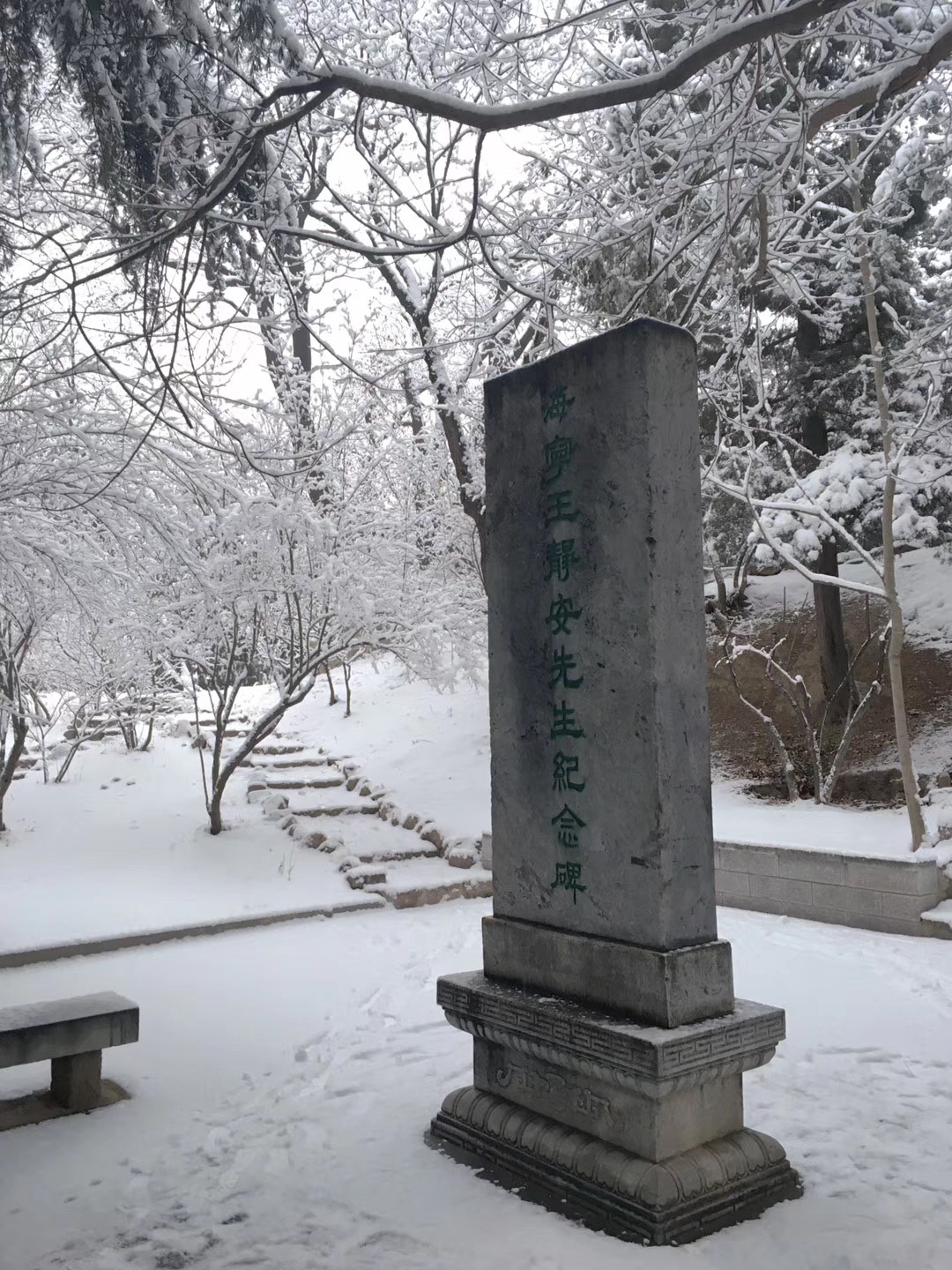Xu Zhangrun vs. Tsinghua University
It is three years to the day since we inaugurated China Heritage by publishing the essay ‘A Monkey King’s Journey to the East’. In our discussion of the incoming president of the United States of America we observed that:
The Chinese Communist Party under its Chairman of Everything, Xi Jinping, hasn’t had to confront such an erratic and populist leader since Mao Zedong launched the Cultural Revolution fifty years ago.
By the same token, America has had to deal with a Chinese leader who has brought a disconcerting new focus and vaunting ambition to his overlordship of the Chinese party-state and its relationship with the outside world.
In July 2018, the Tsinghua University professor Xu Zhangrun published an unsparing critique of both leaders (see Xu Zhangrun 許章潤, Imminent Fears, Immediate Hopes — a Beijing Jeremiad 我們當下的恐懼與期待, China Heritage, 1 August 2018). That essay — one that was both polemic and philippic — was one of a cycle of works written by Professor Xu during that year in which he discussed China’s momentous struggle with modernity, the state of the nation under Xi Jinping and the mixed prospects for its future. Those collected essays were to be published as a book in Hong Kong in May 2020 under the title Six Chapters from the 2018 Year of the Dog — 許章潤著 《戊戌六章》. The authorities forced the publishing house to drop the project, although the volume did eventually appear in June 2020, but with a Chinese-language publisher based in New York. (See 《戊戌六章》 China’s Ongoing Crisis: Six Chapters from the Wuxu Year of the Dog, New York: Boden Books 博登書屋.)
The 2018 Year of the Dog, a ‘Wuxu Year’ according to the traditional Chinese calendar, marked the 120th anniversary of the ‘Wuxu Reforms’ 戊戌變法, also know as the Hundred Day Reforms of 1898 百日維新. At that time, the Guangxu Emperor, the ruler of the Qing dynasty, supported a group of political strategists who had devised an ambitious program to advance further dynastic renewal and national modernisation. A palace coup led to the emperor being placed under house arrest and the arrest and execution of a number of the reformers — they are celebrated to this day as the ‘Six Gentlemen of Wuxu’ 戊戌六君子. The urgent changes that had been supported by the emperor were overturned and a dangerous new era of autocratic rule began. The consequences of that coup proved to be fatal for the Qing dynasty, which collapsed in 1912.
Xu Zhangrun’s ‘Wuxu Essays’, all of which focus on the threat of renewed autocracy under Xi Jinping and the pressing need for legal and political reform in China, were revised and collected in a single volume despite the fact that, from March 2019, their author had been formally banned by Tsinghua University from undertaking any academic work, pursuing any writing projects or publishing any material. As we have previously noted, despite that interdiction Xu remained defiant. He declared that: ‘I will not submit, I will not be cowed’ 老子不服,老子不怕.
We plan to publish a translation of Xu Zhangrun’s introduction to Six Chapters from the 2018 Year of the Dog but, before we do so, we offer here an essay that the Good Professor invited me to write for that volume. An annotated translation of this essay will also appear in these pages in due course.
***
I would like to thank my dear friend Warren Sun 孫萬國 for reading the draft of this essay and for suggestions that not only improved the text but that saved me from untoward embarrassment. I would also like to take this occasion to celebrate the four decades of our friendship — Warren and I met in Canberra in 1980, having been introduced to each other by my mentor and former employer, the editor and writer Lee Yee 李怡.
Geremie R. Barmé
Editor, China Heritage
1 January 2020
***

直指現今,敘諸久遠
序許氏無齋先生巨著
《戊戌六章》
白杰明
無齋先生治學立言,獨獨不慕榮利。生平好讀書,必力求甚解。每有所得,便欣然忘食,奮筆疾書。性又嗜酒,親舊知其然,屢屢置酒招之。造飲輒盡,期在微醺,醺後而侃,諸人無不拜伏。唯於日常起居,則環堵蕭然,不蔽風日;短褐穿結,簞瓢屢空。雖處境頻臨危殆,仍晏然自如。常著文章自娛喻世,以明己志。忘卻得失,求仁得仁,立誓以此自終。
贊曰:不戚戚於貧賤,不汲汲於富貴。極其言,茲若五柳先生乎。酣觴則賦詩撰文,以樂其志。
***
夫昔有陶齋之《盛世危言》,而今有無齋《戊戌六章》,皆警世力作。前者系清朝險峻之哀鳴,後者則可謂紅朝末代之吶喊。
《危言》問世,旋即戊戌百日。《六章》結集,劍指當朝「盛世」。自光緒至紅朝五代,兩輪甲子,光明坎坷相繼,福澤早已殆盡。陶齋所告誡之諸多世象,今日竟似幽靈一般迴盪於中華大地。
「欲攘外,亟須自強;欲自強,必先致富;欲致富,必首在振工商;欲振工商,必先講求學校、速立憲法、尊重道德、改良政治」 乃《危言》之宗旨。時過境未遷,「立憲法、重道德、改政治」之當今訴求,迫在眉睫,更有甚於往昔者。世道雖曰詭譎多變,當局不思自我改造,與時偕行,反而諉罪於外夷魑魅。華夏舊邦,其命維新。由1898至2018,「重道德、改政治」 的戊戌變法,益發為今日中國刻不容緩的命題。
戊戌盛夏,無齋先生於魯迅所哀嘆的無聲處,揭筆起義,直攖龍鱗,撰就《我們當下的恐懼與期待》一文。該雄文隨即傳閱於全球,果然成了震憾域中的驚雷。許文言思犀利,當道一時措手不及,打壓失靈。作者直指廟堂愚昧的超凡膽識,激起了廣泛共鳴。其後,無齋主續發的連珠檄文,雖於內地迅遭噤聲,然在南國外境,網民仍可吟詠無忌。此或可謂天網之疏漏哉。看官切記:國土那塊香江十八區淨地,仍係目田港(即“自由港”),其民眾多為避秦者後人也。於是乎,君子之苦心良言雖於內地箝口,不時得以衝破黨國之圍剿,於邊陲特區重見天日,隨而傳播於境外天下。
先生近年系列時文,集成於此。其篇篇力作皆針對同治中興以降的「中國問題」( The China Syndrome),及現今國朝之「中國方案」或「中國之治」, 針砭現狀、痛陳時弊。其「仰觀吐曜,俯察含章」的才思與文字,堪稱為三不朽之典範。區區不才,貿然應允作序,為着是先生耳提面命的魅力, 更是為着先生以情以愛、昌明「護心」的要義。其文旨在喊話有心人,同時裨益於普世。
無齋先生以謙謙君子,尤善於聯袂恆古與剎那;其功績實為華文世界開創了一副既永久又常新的「文史哲共同體」。其文筆迥異於眼下盛行的浮誇文風,力輓黨八股禍國之狂瀾。其政論甘冒天下之大不諱,抨擊輓近專制道統的積弊。先生既撰文以載道、又著書以言志,其憂患意識深切,凡具良知的芸芸讀者必可領會其中玄機:夫立言無精魄,難以傳遠。著者特立獨行,有如斯者也。世人閱其文集,難不嘆為觀止乎。
***
1898年戊戌維新鼎革夭折,六君問斬之時,嚴復賦詩「感事」, 詩曰:
求治翻為罪,明時誤愛才。
伏屍名士賤,稱疾詔書哀。
燕市天如晦,宣南雨又來。
臨河鳴犢嘆,莫遣才心灰。
2018年戊戌時輪倒轉,憲法遭戳,當局稱帝。許章潤連發文章六篇,長嘯而永吟。
心灰之餘,嚴氏致力轉譯穆勒之《群己權界論》,並於該書《譯凡例》中寫道:
須知言論自繇,只是平實地說實話求真理,
一不為古人所欺、二不為權勢所屈而已。
使理真事實,雖出之仇敵,不可廢也。
使理謬事誣,雖以君父,不可從也。
此之謂自繇。
時過而境不遷,許先生承繼嚴繼道之精髓,吾人知其絕不為權勢所屈。
***
身在故河道旁而心系天下、翱漫天下。戊戌年盡己亥始,先生之學術著作均遭官府禁錮,然眾多同道私下為之鳴放。其時敝人亦力求與時俱進,每當先生或內地聲援者有新文流露必竭力繙成英文。如此累積廿餘篇,並將之結成一本「虛擬文集」,題謂《抗逆忠言——許章潤懟清華大學》。按天下為許氏鳴冤者,無不稱道其獨立自由之精神。譯者於《抗逆忠言》文中嘗徵引民國十八年義寧陳寅恪於清華園所撰《海寧王先生之碑銘》,以突顯當今鴻儒許先生的風骨:
來世不可知者也,先生之著述,或有時而不彰。
先生之學說,或有時而可商。
惟此獨立之精神,自由之思想,
歷千萬祀,與天壤而同久,共三光而永光。
許章潤撰《戊戌六章》,召喚處觀堂之英靈,亦為現代讀者驗證起寅恪名言超越時空的藴意。
「獨立之精神,自由之思想」的真諦,正因天下有無齋主之故,而能垂而長遠,歷久彌真。
紐西蘭北島白水湖
羽鎮雙貓宅白杰明
誌於逢九年平安夜
美利堅賓州茱萸坡
拙文蒙好友 孫萬國兄 潤飾、斧正之恩,于此謹表謝忱。
***
參閱資料:

***

